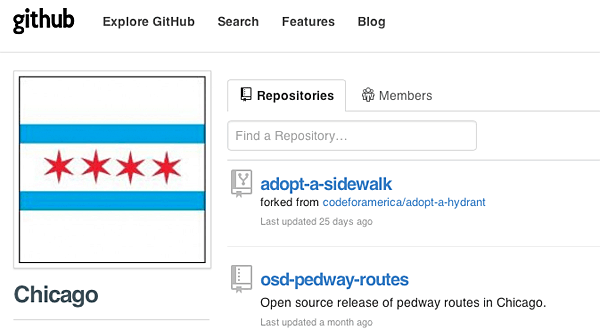- What American Startups Can Learn From the Cutthroat Chinese Software Industry — It follows that the idea of “viral” or “organic” growth doesn’t exist in China. “User acquisition is all about media buys. Platform-to-platform in China is war, and it is fought viciously and bitterly. If you have a Gmail account and send an email to, for example, NetEase163.com, which is the local web dominant player, it will most likely go to spam or junk folders regardless of your settings. Just to get an email to go through to your inbox, the company sending the email needs to have a special partnership.” This entire article is a horror show.
- White House Hangout Maker Movement (Whitehouse) — During the Hangout, Tom Kalil will discuss the elements of an “all hands on deck” effort to promote Making, with participants including: Dale Dougherty, Founder and Publisher of MAKE; Tara Tiger Brown, Los Angeles Makerspace; Super Awesome Sylvia, Super Awesome Maker Show; Saul Griffith, Co-Founder, Otherlab; Venkatesh Prasad, Ford.
- Municipal Codes of DC Freed (BoingBoing) — more good work by Carl Malamud. He’s specifically providing data for apps.
- The Modern Malware Review (PDF) — 90% of fully undetected malware was delivered via web-browsing; It took antivirus vendors 4 times as long to detect malware from web-based applications as opposed to email (20 days for web, 5 days for email); FTP was observed to be exceptionally high-risk.
"open government" entries

Open data can drive partnerships with government
An exploration of themes in Joel Gurin's book Open Data Now.
As governments and businesses — and increasingly, all of us who are Internet-connected — release data out in the open, we come closer to resolving the tiresomely famous and perplexing quote from Stewart Brand: “Information wants to be free. Information also wants to be expensive.” Open data brings home to us how much free information is available and how productive it is in its free state, but one subterranean thread I found in Joel Gurin’s book Open Data Now highlights an important point: information is very expensive.
In this article, I’ll explore a few themes that piqued my interest in Gurin’s book: the value of open data, the expense it entails, the questions of how much we can use and trust it, and the role the general public and the private sector play in bringing us data’s benefits. This is not meant to be a summary or a review of Gurin’s book; it is an exploration of themes that interest me, inspired by my reading of Gurin.
Open, trustworthy, and useful
“Open data” occupies hierarchies of usefulness. One way of describing its usefulness is the structure of its presentation, as Gurin and others such as Tim Berners-Lee have pointed out. Much data is still fairly unstructured, like the reviews and social media status postings that people generate by the millions and that are funneled into eager consumption by marketing analysts. Some data is more structured, existing as tables. And finally, a tiny fragment can be reached through the RESTful APIs supported by libraries in every modern programming language. Read more…

The RSA/NSA controversy concerns you!
This controversy impacts everyone (and here's what we can do about it)
As a cyber security author and CEO of a security consulting company, I was personally shocked by the RSA’s attitude about the alleged secret payments it received from the NSA as well as its willingness to weaken its BSAFE product; especially after the weakness became public in 2006. I was even more shocked by the lack of outrage shown by many security bloggers, analysts, and security company executives.
The speaker-in-protest count has reached 13 speakers who have canceled talks they were scheduled to give at the RSA Conference (RSAC) next week, first and most notably, Mikko Hypponen, who published this open letter. A few outraged others have also spoken out about their decision to cancel their talks, including Dave Kearns and, via Twitter, Adam Langley and Josh Thomas.

The public front of the free software campaign: part I
A review of my discussion with Free Software Foundation's Zak Rogoff.
At a recent meeting of the MIT Open Source Planning Tools Group, I had the pleasure of hosting Zak Rogoff — campaigns manager at the Free Software Foundation — for an open-ended discussion on the potential for free and open tools for urban planners, community development organizations, and citizen activists. The conversation ranged over broad terrain in an “exploratory mode,” perhaps uncovering more questions than answers, but we did succeed in identifying some of the more common software (and other) tools needed by planners, designers, developers, and advocates, and shared some thoughts on the current state of FOSS options and their relative levels of adoption.
Included were the usual suspects — LibreOffice for documents, spreadsheets, and presentations; QGIS and OpenStreetMap for mapping; and (my favorite) R for statistical analysis — but we began to explore other areas as well, trying to get a sense of what more advanced tools (and data) planners use for, say, regional economic forecasts, climate change modeling, or real-time transportation management. (Since the event took place in the Department of Urban Studies & Planning at MIT, we mostly centered on planning-related tasks, but we also touched on some tangential non-planning needs of public agencies, and the potential for FOSS solutions there: assessor’s databases, 911 systems, library catalogs, educational software, health care exchanges, and so on.) Read more…

Sprinting toward the future of Jamaica
Open data is fundamental to democratic governance and development, say Jamaican officials and academics.
Creating the conditions for startups to form is now a policy imperative for governments around the world, as Julian Jay Robinson, minister of state in Jamaica’s Ministry of Science, Technology, Energy and Mining, reminded the attendees at the “Developing the Caribbean” conference last week in Kingston, Jamaica.

Robinson said Jamaica is working on deploying wireless broadband access, securing networks and stimulating tech entrepreneurship around the island, a set of priorities that would have sounded of the moment in Washington, Paris, Hong Kong or Bangalore. He also described open access and open data as fundamental parts of democratic governance, explicitly aligning the release of public data with economic development and anti-corruption efforts. Robinson also pledged to help ensure that Jamaica’s open data efforts would be successful, offering a key ally within government to members of civil society.
The interest in adding technical ability and capacity around the Caribbean was sparked by other efforts around the world, particularly Kenya’s open government data efforts. That’s what led the organizers to invite Paul Kukubo to speak about Kenya’s experience, which Robinson noted might be more relevant to Jamaica than that of the global north. Read more…

Strata Week: Our phones are giving us away
Anonymized phone data isn't as anonymous as we thought, a CFPB API, and NYC's "geek squad of civic-minded number-crunchers."
Mobile phone mobility traces ID users with only four data points
A study published this week by Scientific Reports, Unique in the Crowd: The privacy bounds of human mobility, shows that the location data in mobile phones is posing an anonymity risk. Jason Palmer reported at the BBC that researchers at MIT and the Catholic University of Louvain reviewed data from 15 months’ worth of phone records for 1.5 million people and were able to identify “mobility traces,” or “evident paths of each mobile phone,” using only four locations and times to positively identify a particular user. Yves-Alexandre de Montjoye, the study’s lead author, told Palmer that “[t]he way we move and the behaviour is so unique that four points are enough to identify 95% of people.”


Four short links: 28 March 2013
Chinese Lessons, White House Embraces Makers, DC Codes Freed, and Malware Numbers

The City of Chicago wants you to fork its data on GitHub
Chicago CIO Brett Goldstein is experimenting with social coding for a different kind of civic engagement.
GitHub has been gaining new prominence as the use of open source software in government grows.
Earlier this month, I included a few thoughts from Chicago’s chief information officer, Brett Goldstein, about the city’s use of GitHub, in a piece exploring GitHub’s role in government.
While Goldstein says that Chicago’s open data portal will remain the primary means through which Chicago releases public sector data, publishing open data on GitHub is an experiment that will be interesting to watch, in terms of whether it affects reuse or collaboration around it.
In a followup email, Goldstein, who also serves as Chicago’s chief data officer, shared more about why the city is on GitHub and what they’re learning. Our discussion follows.

GitHub gains new prominence as the use of open source within governments grows
The collaborative coding site hired a "government bureaucat."
 When it comes to government IT in 2013, GitHub may have surpassed Twitter and Facebook as the most interesting social network.
When it comes to government IT in 2013, GitHub may have surpassed Twitter and Facebook as the most interesting social network.
GitHub’s profile has been rising recently, from a Wired article about open source in government, to its high profile use by the White House and within the Consumer Financial Protection Bureau. This March, after the first White House hackathon in February, the administration’s digital team posted its new API standards on GitHub. In addition to the U.S., code from the United Kingdom, Canada, Argentina and Finland is also on the platform.
“We’re reaching a tipping point where we’re seeing more collaboration not only within government agencies, but also between different agencies, and between the government and the public,” said GitHub head of communications Liz Clinkenbeard, when I asked her for comment. Read more…

White House moves to increase public access to scientific research online
More federally funded research and data will be made freely available to the public online.
Today, the White House responded to a We The People e-petition that asked for free online access to taxpayer-funded research.
 As part of the response, John Holdren, the director of the White House Office of Science and Technology Policy, released a memorandum today directing agencies with “more than $100 million in research and development expenditures to develop plans to make the results of federally-funded research publically available free of charge within 12 months after original publication.”
As part of the response, John Holdren, the director of the White House Office of Science and Technology Policy, released a memorandum today directing agencies with “more than $100 million in research and development expenditures to develop plans to make the results of federally-funded research publically available free of charge within 12 months after original publication.”
The Obama administration has been considering access to federally funded scientific research for years, including a report to Congress in March 2012. The relevant e-petition, which had gathered more than 65,000 signatures, had gone unanswered since May of last year.
As Hayley Tsukayama notes in the Washington Post, the White House acknowledged the open access policies of the National Institutes of Health as a successful model for sharing research. Read more…

Personal data ownership drives market transparency and empowers consumers
The White House added a community for the "smart disclosure" of consumer data to Data.gov.
On Monday morning, the Obama administration launched a new community focused on consumer data at Data.gov. While there was no new data to be found among the 507 datasets listed there, it was the first time that smart disclosure has an official home in federal government.

Image via Data.gov.
“Smart disclosure means transparent, plain language, comprehensive, synthesis and analysis of data that helps consumers make better-informed decisions,” said Christopher Meyer, the vice president for external affairs and information services at Consumers Union, the nonprofit that publishes “Consumer Reports,” in an interview. “The Obama administration deserves credit for championing agency disclosure of data sets and pulling it together into one web site. The best outcome will be widespread consumer use of the tools — and that remains to be seen.”
You can find the new community at Consumer.Data.gov or data.gov/consumer. Both URLs forward visitors to the same landing page, where they can explore the data, past challenges, external resources on the topic, in addition to a page about smart disclosure, blog posts, forums and feedback.
“Analyzing data and giving plain language understanding of that data to consumers is a critical part of what Consumer Reports does,” said Meyer. “Having hundreds of data sets available on one (hopefully) easy-to-use platform will enable us to provide even more useful information to consumers at a time when family budgets are tight and health care and financial ‘choices” have never been more plentiful.”

